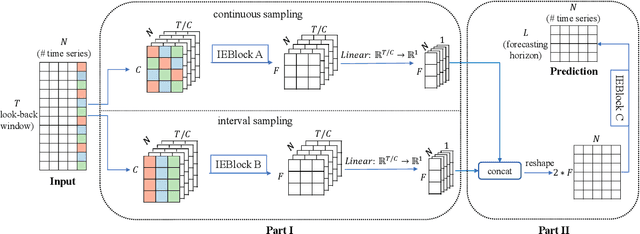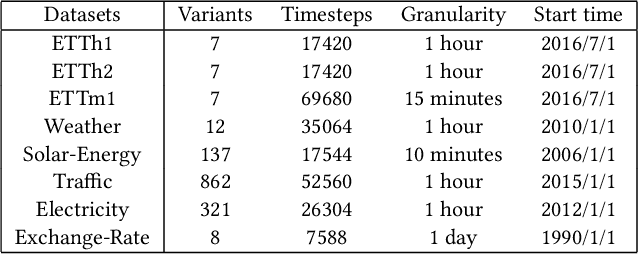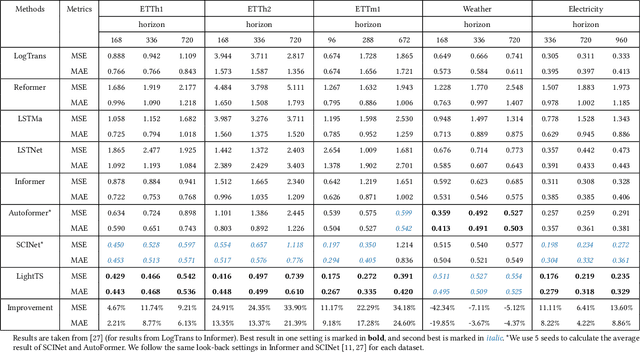Less Is More: Fast Multivariate Time Series Forecasting with Light Sampling-oriented MLP Structures
Paper and Code
Jul 04, 2022



Multivariate time series forecasting has seen widely ranging applications in various domains, including finance, traffic, energy, and healthcare. To capture the sophisticated temporal patterns, plenty of research studies designed complex neural network architectures based on many variants of RNNs, GNNs, and Transformers. However, complex models are often computationally expensive and thus face a severe challenge in training and inference efficiency when applied to large-scale real-world datasets. In this paper, we introduce LightTS, a light deep learning architecture merely based on simple MLP-based structures. The key idea of LightTS is to apply an MLP-based structure on top of two delicate down-sampling strategies, including interval sampling and continuous sampling, inspired by a crucial fact that down-sampling time series often preserves the majority of its information. We conduct extensive experiments on eight widely used benchmark datasets. Compared with the existing state-of-the-art methods, LightTS demonstrates better performance on five of them and comparable performance on the rest. Moreover, LightTS is highly efficient. It uses less than 5% FLOPS compared with previous SOTA methods on the largest benchmark dataset. In addition, LightTS is robust and has a much smaller variance in forecasting accuracy than previous SOTA methods in long sequence forecasting tasks.
 Add to Chrome
Add to Chrome Add to Firefox
Add to Firefox Add to Edge
Add to Edge